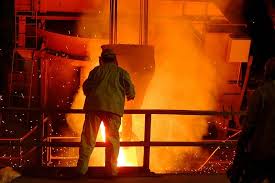The UK government has been “forced to change plans” for its steel industry due to a “slew of crises” in the global market, Business Secretary Peter Kyle has said. Citing trade tariffs and a flood of oversupply from China, Kyle is now backing a strategic shift to electric arc furnaces (EAFs) at Scunthorpe as a path to survival.
This pivot is part of a new steel strategy, due in December, aimed at making the state-controlled British Steel plant sustainable. The plant was rescued in April from its Chinese owner, Jingye Steel, which had threatened to close it down, wiping out 2,700 jobs.
The financial toll of this global instability is already apparent. Kyle confirmed that “hundreds of millions” from the £2.5bn steel fund have been spent just to keep British Steel and the insolvent Liberty Steel afloat. This leaves less for the capital investment needed for the EAF transition.
Industry groups like UK Steel, while welcoming the minister’s “clear future vision,” emphasised that new technology alone is not enough. They are demanding “lower power prices and robust trade policies” to compete in the hostile global environment that Kyle described.
This externally-forced transition also creates internal strife. The move to EAFs threatens thousands of UK jobs tied to blast furnaces and jeopardises the nation’s “primary steelmaking” capacity. Unions are demanding a “just transition” that addresses both the job fears and the strategic industrial loss.


